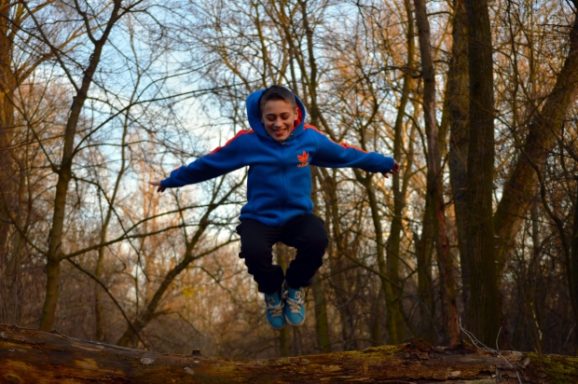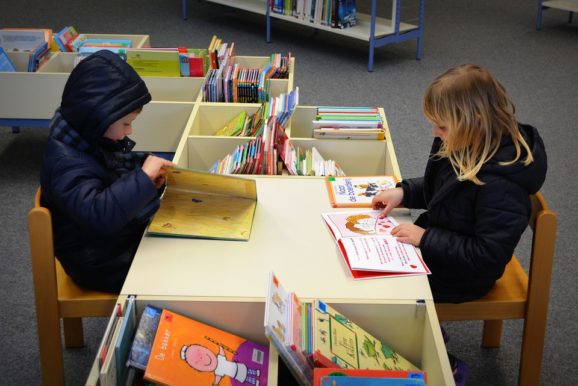In every school, there are teachers who very effectively manage students. At first, it was thought that those teachers had some big bag of tricks that other teachers didn’t have, which helped them to know just what to do in various situations. What the research is telling us is that effective classroom managers spend an inordinate amount of their time during the first few days and weeks of school establishing their expectations and procedures, in other words, their rituals. Continue Reading…
I simply cannot teach or live without music! Neither should you. Music gets each day off to an encouraging start, leads students calmly through transition times, minimizes classroom disruptions, and gives all who hear it a sense of well-being. Continue Reading…
A school system was in the process of building five new schools to house their increasing student population. Having read the research on the detrimental effects of fluorescent lighting, I shared with the architects rationales for including additional windows or a different type of lighting in the construction of these new buildings. The experts thanked me for my input but proceeded to include fluorescent lighting in plans for each of the five new edifices. Continue Reading…
Teachers ask this question of me a great deal, What is more memorable to the brain– typing on a computer or writing in long hand? Guess which one! If you said writing, you would be correct. Continue Reading…
Have you flown in an airplane recently? If so, you probably recall that the flight attendants don’t simply tell you what to do with your seat belt and the other myriad instructions they need to give. They have to show you. Why? Continue Reading…
One of my favorite commercials is one for Walmart where a father surprises his teenage daughter with her own cell phone. In her euphoric state, she excitedly hugs her father and announces to him that she will now be able to “pin, post, tweet, snap, tag, check, and share.” Continue Reading…
When I teach math, if the objective involves problem solving, I never use the problems in the book as my initial examples. Most do not have any real meaning for students. Continue Reading…
When students move while learning, they put information in procedural or muscle memory. Procedural memory is one of the strongest memory systems in the brain and the reason that one seldom forgets how to drive a car, ride a bicycle, play the piano, type on a keyboard, tie one’s shoes, or brush one’s teeth. Continue Reading…
The use of the hands and brain activity are so complicated and interconnected that no one theory explains it. I can’t explain it either! I just know that some students need to have their hands involved before their brains can understand.
“Did you hear about the mathematician who’s afraid of negative numbers? He’ll stop at nothing to avoid them.”
If the math pun above made you laugh or even smile a little, it put your brain in a more positive state. Research tells us that jokes, riddles, celebrations, and other forms of positive interaction not only create a positive learning environment but may also facilitate learning itself. Continue Reading…
There appears to be a recent movement among some parents that childhood should be a carefree and joyful time and that their children are happier when all rules and responsibilities are taken away. Nothing could be further from the truth. Continue Reading…
“The more that you read, the more things you will know. The more you learn, the more places you’ll go.”— Dr. Seuss
A woman once asked Albert Einstein how she could make her son more intelligent. His response? Read him fairy tales. Continue Reading…
Success in school depends on many factors for students, but one of the most important areas that can be overlooked is proper physical health practices that encourage healthy brain development. The brain is a demanding organ. It comprises only 2% of the total body weight, but consumes 8 to 10 times more oxygen and glucose than any other organ in the body. This is why we must do everything we can to protect this vital part of our body. Sadly, some people have had the health of their brains compromised as a consequence of incurring an injury. Luckily, brain injury lawyers try their best to seek justice in a legal sense retrospectively. If our bodies don’t receive the proper nutrition they need, the brain is the first to suffer. Continue Reading…
Whether you are a teacher delivering instructions to students or a student attempting to retain information for a class, there are 20 cross-curricular strategies that take advantage of the way all brains learn best. They are as follows:
According to brain research, there are simple things you can do to create a calming, stress-relieving environment for you, your family, and even students in a classroom.
Relationships are everything! Familial and friend relationships, workplace relationships, and spiritual relationships all make a tremendous difference in our lives.
When you look at the first chapter in my best-selling book on classroom management, Shouting Won’t Grow Dendrites: 20 Detours Around the Danger Zones, you will find that the first chapter is titled, “Develop a Relationship with Each Student.” Continue Reading…
When students cannot see the purpose in a teacher’s lesson, they will often ask the question, “Why do we have to learn this?” This question makes perfect sense, since the purpose of the brain was never to make straight As or score high on a standardized test. The purpose of the brain is survival in the real world. So the question becomes, “What does this lesson have to do with my survival?”
Stephen Covey, author of 7 Habits of Highly Effective People, stated the following: Everything happens twice – once in the mind and once in reality. The once in the mind could be called visualization. Visualization has been defined as the use of mental images to influence bodily processes and is one of 20 brain-based strategies that enables human beings to remember what they are learning.
If you believe you can or you believe you can’t, you’re actually right!
This thing we call confidence is often difficult for a parent to see in a child or for a teacher to see in a student. We can even have a hard time seeing it within ourselves. But it is not difficult to observe in sports, so I would like to use a sports analogy to explain the concept.
Continue Reading…
Very few people actually realize the positive effects of laughter. In fact, it has been said that little children can laugh up to 400 times per day. Adults are lucky to average seven times per day.
I guess between childhood and adulthood, life happens! If, however, while you are living this life that happens, make smiles and laughter a part of your every day.



















